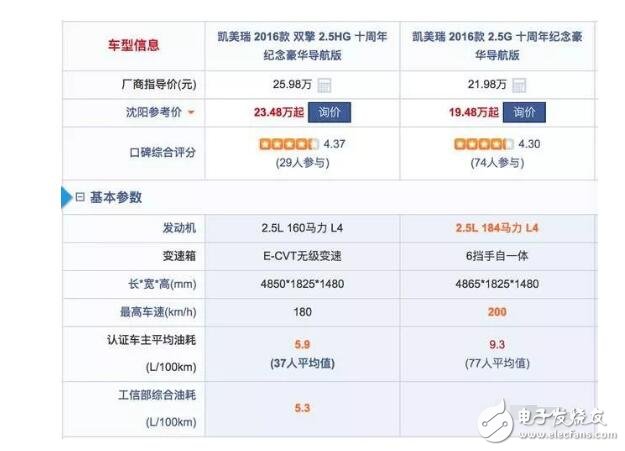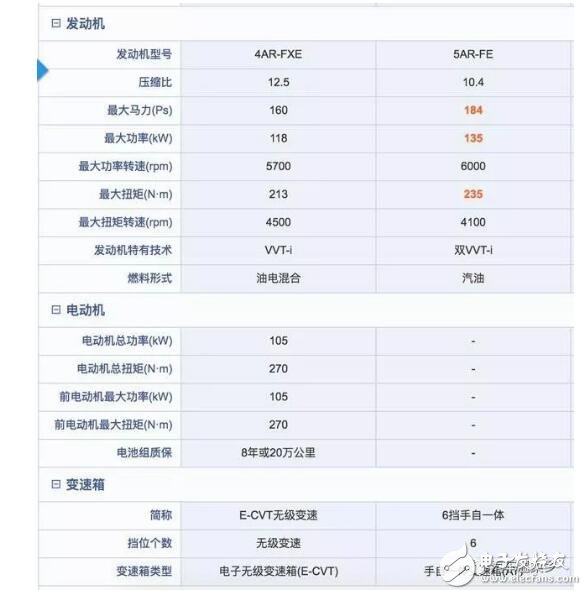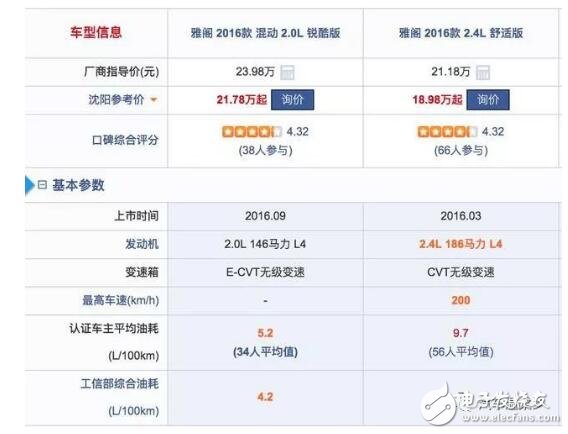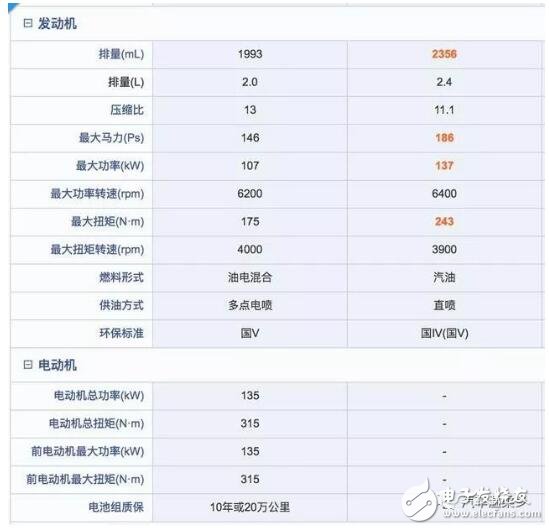Abstract: This paper primarily discusses the advantages and disadvantages of hybrid vehicles. It also provides a detailed comparison between hybrid vehicles and traditional gasoline-powered cars, focusing on four models: Toyota Camry and Honda Accord.
What is a Hybrid Car?Hybrid vehicles combine conventional fuel sources with electric motors or engines to enhance low-speed performance and reduce fuel consumption. Depending on the type of fuel used, hybrids can be categorized into two main types: gasoline hybrids and diesel hybrids. While gasoline hybrids dominate the domestic market, diesel hybrids are gaining traction internationally due to their increasing development and efficiency.
Advantages of Hybrid Cars:1. Hybrid systems allow the internal combustion engine to operate at its most efficient level, reducing fuel consumption and emissions. When more power is needed, the battery supplements the engine; when there's excess energy, it can be stored in the battery. This ensures continuous operation and eliminates the need for frequent recharging.
2. Hybrids efficiently recover energy during braking, downhill driving, and idling, which helps improve overall efficiency.
3. In urban areas, the engine can be turned off, allowing the vehicle to run solely on battery power, resulting in zero tailpipe emissions.
4. The presence of an internal combustion engine makes it easier to handle features like air conditioning, heating, and defrosting, which can be challenging for pure electric vehicles.
5. Hybrid vehicles can use existing gas stations, eliminating the need for additional infrastructure investment.
6. The battery remains in optimal working condition, avoiding overcharging and over-discharging, which extends its lifespan and reduces long-term costs.
Disadvantages of Hybrid Cars:One major drawback is that hybrids are less fuel-efficient for long-distance, high-speed driving. Additionally, the initial purchase price of a hybrid vehicle is typically higher than that of a comparable gasoline-powered car.
Comparison Between Hybrid and Gasoline VehiclesHybrid models offer a significant advantage in city driving, where traffic congestion is common. When stopped, the engine automatically turns off, similar to start-stop technology found in many modern vehicles. During acceleration or deceleration, the vehicle relies on electric power, and only engages the engine at higher speeds. This minimizes fuel consumption and reduces carbon emissions in urban environments.
Another benefit of hybrid vehicles is that both the motor and engine work together during acceleration, providing better performance compared to traditional gasoline engines of the same displacement. However, the higher upfront cost of hybrid models must be considered. When evaluating total ownership costs—purchase price plus daily usage—it’s important to determine which option is more cost-effective and suitable for individual needs.
Comparison of Four Models: Toyota Camry and Honda Accord
Camry Comparison Model Basic Information

Camry Comparison Model Power Information
Purchase CostIn the case of the Toyota Camry, models with the same gasoline engine displacement differ mainly in transmission and other configurations. Although the pure gasoline version has slightly higher power, the hybrid model offers greater torque. The hybrid variant is priced around 37,000 yuan.

Accord Comparison Model Basic Information

The Honda Accord hybrid model we selected has a larger gasoline engine displacement than the hybrid model, but the combined torque of the hybrid system still exceeds that of the 2.4L gasoline model. The hybrid version is approximately 28,000 yuan.
Maintenance CostHybrid vehicles require less maintenance since the motor and battery do not need regular servicing. Manufacturers often guarantee the battery life to match the vehicle’s lifespan, typically offering an 8-year or 200,000-kilometer warranty. This makes hybrids a reliable choice for family use.
Regarding fuel costs, we analyzed real-world fuel consumption data from car owners. Assuming an average monthly distance of 1,000 km and an oil price of 6.4 yuan per liter:
For the Camry hybrid, fuel consumption is 3.4 liters per 100 km, totaling 408 liters annually (based on 12,000 km), saving about 2,611 yuan per year.
The Accord hybrid consumes 4.5 liters per 100 km, resulting in 540 liters annually, costing 3,456 yuan.
Tax considerations: Currently, the government offers preferential policies only for plug-in electric vehicles and models below 1.5L. Therefore, the tax burden for these models is similar.
Elf Bar Pi9000 Review,Elf Bar Pi 9000 Einweg,Elf Bar Pi9000 Archiv,Elf 9000 Crystal Crowns
Longhua Manxueling Trading Company , https://www.mxlvape.com
